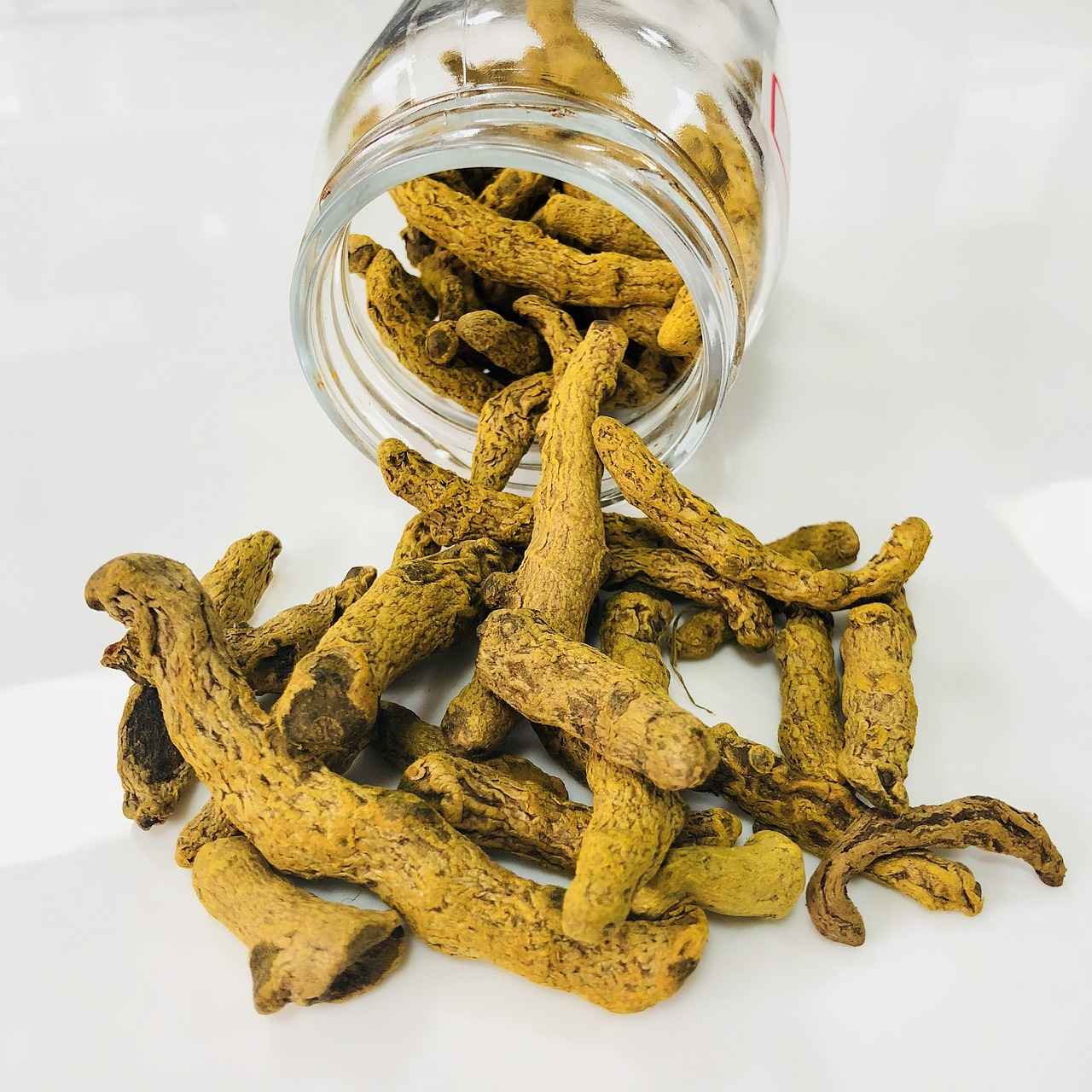This article delves into the remarkable advantages of curcumin supplements for promoting healthy aging. As we age, maintaining our health and vitality becomes increasingly important. Curcumin, the active compound in turmeric, has been extensively studied for its numerous health benefits. This article will examine its anti-inflammatory properties, antioxidant effects, and overall potential to enhance well-being as we age.
What is Curcumin?
Curcumin is the vibrant yellow pigment found in turmeric, a spice commonly used in cooking and traditional medicine. This compound has garnered attention for its extensive health benefits, particularly in the realms of inflammation and oxidative stress.
Health Benefits of Curcumin for Aging
As we grow older, the body undergoes various changes that can lead to health issues. Curcumin offers a range of benefits that can help support aging individuals:
- Anti-inflammatory Effects: Chronic inflammation is a significant factor in many age-related diseases. Curcumin’s potent anti-inflammatory properties can help alleviate these risks.
- Cognitive Function Enhancement: Research suggests that curcumin may support brain health, potentially reducing the risk of neurodegenerative diseases.
- Joint Health Improvement: Curcumin may help reduce pain and stiffness in joints, enhancing mobility and quality of life.
Anti-Inflammatory Properties
Chronic inflammation is linked to numerous health issues in older adults, including heart disease and arthritis. Curcumin helps combat these conditions by inhibiting inflammatory pathways, thereby promoting a healthier aging process.
Research Findings
Numerous studies indicate that curcumin can lower inflammatory markers in the body, which suggests its potential in managing chronic inflammation effectively.
Cognitive Health and Curcumin
Curcumin may also be beneficial for cognitive health, with studies suggesting it can enhance memory function and potentially lower the risk of conditions like Alzheimer’s disease.
Curcumin and Joint Health
As we age, joint pain and stiffness often become more prevalent. Curcumin’s anti-inflammatory properties can help alleviate these symptoms, leading to improved mobility and a better quality of life.
How to Incorporate Curcumin into Your Diet
Incorporating curcumin into your daily routine is simple, whether through supplements or culinary uses:
- Curcumin Supplements: These are widely available and provide concentrated doses. Opt for high-quality products to enhance absorption.
- Cooking with Turmeric: Adding turmeric to meals is an easy way to include curcumin in your diet. It can be blended into various dishes, from soups to smoothies.
Conclusion
In summary, curcumin supplements can play a significant role in supporting healthy aging. With their anti-inflammatory and antioxidant properties, they offer an effective way to enhance overall well-being as we age. As always, it is advisable to consult with a healthcare professional before starting any new supplement regimen.

What is Curcumin?
Curcumin is a natural compound derived from the turmeric root, a spice that has been used for centuries in cooking and traditional medicine. Its vibrant yellow color not only adds aesthetic appeal to dishes but also signifies its potent health benefits. With a rich history in Ayurvedic and Chinese medicine, curcumin is celebrated for its therapeutic properties, making it a focal point in both traditional and modern health practices.
As an active ingredient in turmeric, curcumin is known for its anti-inflammatory and antioxidant effects, which are essential for maintaining health as we age. Research indicates that curcumin may help combat oxidative stress and inflammation, two key factors linked to various age-related diseases. This compound is not just a culinary delight; it has significant implications for promoting longevity and enhancing the quality of life.
Curcumin’s versatility extends beyond its medicinal properties. It can be easily incorporated into daily routines through supplements or culinary uses. For instance, adding turmeric to meals like soups, stews, and smoothies can provide a flavorful boost while delivering essential health benefits. Furthermore, curcumin supplements, often formulated for better absorption, can offer a concentrated dose for those seeking its therapeutic effects.
In summary, curcumin is a powerful compound that supports healthy aging through its remarkable health benefits. By understanding its properties and incorporating it into our diets, we can harness its potential to enhance overall well-being as we age. Whether through traditional dishes or modern supplements, curcumin remains a valuable ally in the quest for longevity and vitality.

Health Benefits of Curcumin for Aging
Curcumin, a natural compound derived from turmeric, is gaining recognition for its numerous health benefits, especially for aging individuals. As we age, maintaining our health and vitality becomes increasingly important, and curcumin may play a crucial role in this endeavor.
One of the most significant advantages of curcumin is its anti-inflammatory properties. Chronic inflammation is often linked to various age-related diseases, such as heart disease, diabetes, and arthritis. By reducing inflammation, curcumin can help mitigate these risks, thereby promoting a healthier aging process.
Enhancing Cognitive Function
In addition to its anti-inflammatory effects, curcumin may also enhance cognitive function. Research suggests that curcumin can help protect against neurodegenerative diseases like Alzheimer’s disease. It may improve memory and overall brain health, making it an essential supplement for older adults looking to maintain their cognitive abilities.
Joint Health and Mobility
Joint pain and stiffness are common complaints among the elderly. Curcumin’s ability to reduce inflammation can lead to improved joint health, allowing for greater mobility and a better quality of life. Studies have shown that individuals taking curcumin supplements experience less joint pain and improved physical function.
Research Findings
Numerous studies have validated curcumin’s health benefits. For instance, clinical trials have demonstrated its effectiveness in lowering inflammatory markers, which are often elevated in aging populations. These findings highlight curcumin’s potential as a natural remedy for managing chronic inflammation.
Conclusion
In summary, curcumin offers a range of health benefits that can significantly support aging individuals. From its anti-inflammatory properties to its potential for enhancing cognitive function and improving joint health, curcumin is a valuable addition to any aging adult’s health regimen. As always, it is advisable to consult with a healthcare provider before starting any new supplement.
Anti-Inflammatory Properties
Chronic inflammation is a significant concern as it is closely associated with various age-related diseases, including heart disease, diabetes, and certain cancers. As we age, our bodies often experience increased levels of inflammation, which can lead to a decline in overall health. This is where curcumin, the active compound found in turmeric, comes into play.
Curcumin is renowned for its powerful anti-inflammatory properties. Research indicates that it can effectively inhibit various inflammatory pathways in the body, thereby reducing the risk of chronic diseases associated with aging. By modulating the immune response and decreasing the levels of inflammatory markers, curcumin can significantly contribute to a healthier and more vibrant aging process.
Moreover, studies have shown that curcumin can help alleviate symptoms of inflammatory conditions such as arthritis, which are common in older adults. By reducing joint inflammation, curcumin not only enhances mobility but also improves the overall quality of life for aging individuals.
| Benefits of Curcumin | Impacts on Aging |
|---|---|
| Reduces Inflammatory Markers | Decreases risk of chronic diseases |
| Alleviates Joint Pain | Improves mobility and quality of life |
| Enhances Immune Response | Supports overall health |
In conclusion, incorporating curcumin into your diet can be a strategic approach to combat chronic inflammation and promote healthy aging. Whether through supplements or culinary uses, the benefits of curcumin are well-supported by scientific research, making it an essential addition to the diets of those looking to maintain their health as they age.
Mechanisms of Action
Curcumin, the active ingredient in turmeric, exhibits its remarkable health benefits through a variety of mechanisms that target inflammation and oxidative stress in the body. This is particularly important for older adults, who may experience a range of inflammatory conditions and age-related diseases.
One of the primary ways curcumin operates is by inhibiting pro-inflammatory cytokines. These are signaling molecules that play a crucial role in the inflammatory response. By reducing the production of these cytokines, curcumin helps to lower inflammation and alleviate symptoms associated with conditions like arthritis.
Additionally, curcumin has been shown to modulate various signaling pathways involved in inflammation. For instance, it can inhibit the nuclear factor kappa B (NF-kB) pathway, which is a key regulator of the inflammatory response. By blocking this pathway, curcumin can effectively reduce the expression of genes responsible for inflammation, thereby promoting a healthier state in the body.
Furthermore, curcumin acts as a potent antioxidant, neutralizing free radicals that contribute to oxidative stress and cellular damage. This antioxidant activity not only helps in reducing inflammation but also plays a role in protecting against chronic diseases commonly associated with aging, such as heart disease and neurodegenerative disorders.
Research has demonstrated that curcumin can significantly lower levels of inflammatory markers such as C-reactive protein (CRP) and interleukin-6 (IL-6). These findings suggest that curcumin supplementation may offer a practical approach to managing chronic inflammation and enhancing overall health in older adults.
In conclusion, the multifaceted mechanisms of action of curcumin highlight its potential as a powerful ally in promoting healthy aging. By targeting inflammation and oxidative stress, curcumin supplements can play an essential role in improving quality of life for older individuals.
Research Findings
Recent studies have provided compelling evidence regarding the benefits of curcumin, particularly in the context of managing chronic inflammation, which is a significant concern for aging populations. Chronic inflammation has been linked to various age-related diseases, including heart disease, diabetes, and neurodegenerative disorders. Therefore, understanding how curcumin can influence inflammatory markers is essential for promoting healthy aging.
In a systematic review published in a leading medical journal, researchers analyzed multiple clinical trials involving curcumin supplementation. The findings indicated that participants who took curcumin experienced a notable reduction in inflammatory markers such as C-reactive protein (CRP) and interleukin-6 (IL-6). These markers are crucial indicators of inflammation in the body, and their reduction suggests that curcumin may help mitigate the risks associated with chronic inflammatory conditions.
Moreover, another study highlighted the bioavailability of curcumin, emphasizing that formulations designed to enhance absorption significantly improve its effectiveness. This is particularly important for older adults, as the body’s ability to absorb nutrients often diminishes with age. Enhanced curcumin formulations can lead to better health outcomes, making it a viable option for those looking to manage inflammation.
Furthermore, a meta-analysis of randomized controlled trials found that curcumin supplementation not only reduced inflammation but also improved overall quality of life in older adults. Participants reported decreased joint pain, enhanced mobility, and improved cognitive function, showcasing curcumin’s multifaceted benefits.
In conclusion, the research surrounding curcumin and its anti-inflammatory properties presents a promising avenue for supporting healthy aging. With its ability to lower inflammatory markers and improve overall well-being, curcumin supplements could play a vital role in managing chronic inflammation and promoting a healthier lifestyle as we age.
Cognitive Health and Curcumin
As we age, maintaining cognitive health becomes increasingly vital. Research suggests that curcumin, the active compound in turmeric, may offer significant benefits in this area. Its potential to enhance cognitive function and reduce the risk of neurodegenerative diseases, such as Alzheimer’s, has garnered considerable attention from the scientific community.
Curcumin is known for its anti-inflammatory and antioxidant properties, which play a crucial role in brain health. Chronic inflammation and oxidative stress are linked to cognitive decline, and curcumin can help combat these factors. By reducing inflammation in the brain, curcumin may help to protect neurons and support overall cognitive function.
Several studies have indicated that curcumin may improve memory function and enhance the ability to process information. For instance, a study published in the Journal of Alzheimer’s Disease found that participants who took curcumin supplements showed improved memory scores compared to those who did not. These findings suggest that curcumin could be a valuable addition to the diets of older adults seeking to maintain their cognitive abilities.
Moreover, curcumin’s ability to cross the blood-brain barrier allows it to exert its beneficial effects directly within the brain. This unique property makes it a promising candidate for further research into its potential role in preventing or slowing the progression of neurodegenerative diseases.
Incorporating curcumin into your diet can be simple. Whether through supplements or culinary uses, such as adding turmeric to meals, individuals can easily access its cognitive benefits. However, it is essential to consult with a healthcare professional before starting any new supplement regimen.
In conclusion, curcumin holds promise for promoting cognitive health and reducing the risk of neurodegenerative diseases. Its anti-inflammatory and antioxidant properties make it a valuable ally in the quest for healthy aging. As research continues, curcumin may emerge as a key player in supporting brain health and enhancing memory function.

Curcumin and Joint Health
As we age, many individuals experience joint pain and stiffness, which can significantly impact daily activities and overall quality of life. Curcumin, the active compound found in turmeric, has gained attention for its potential to alleviate these symptoms through its remarkable anti-inflammatory properties.
Research indicates that curcumin may effectively reduce the discomfort associated with joint conditions such as osteoarthritis and rheumatoid arthritis. By targeting the underlying inflammation, curcumin helps to promote joint mobility and enhance physical function.
| Benefit | Description |
|---|---|
| Anti-Inflammatory | Curcumin inhibits inflammatory pathways, reducing joint swelling and pain. |
| Improved Mobility | By alleviating pain, curcumin can enhance overall joint function and mobility. |
| Quality of Life | Reduction in joint pain leads to better engagement in daily activities. |
Several clinical studies have demonstrated the effectiveness of curcumin in managing joint pain. For instance, one study found that participants taking curcumin supplements reported a significant decrease in pain levels and an increase in their ability to perform physical tasks.
To maximize the benefits of curcumin, it is essential to consider the dosage and form of supplementation. Higher bioavailability formulations, such as those combined with black pepper extract (piperine), can enhance absorption, making them more effective.
Incorporating curcumin into your diet can be straightforward. Whether through supplements or by adding turmeric to your meals, such as in soups, stews, or smoothies, you can enjoy the myriad benefits of this powerful compound.
In conclusion, curcumin presents a promising natural solution for managing joint health as we age. Its anti-inflammatory properties not only alleviate pain but also improve mobility and enhance overall quality of life. By understanding how to incorporate curcumin effectively, individuals can take proactive steps toward healthier aging.
Clinical Studies on Joint Pain
Joint pain is a prevalent issue among older adults, particularly those suffering from conditions such as osteoarthritis. Recent research has highlighted the potential of curcumin supplementation as a natural remedy to alleviate these symptoms. Several clinical trials have provided compelling evidence that curcumin can significantly reduce joint pain and enhance physical function.
One notable study published in the journal Phytotherapy Research involved a randomized, double-blind, placebo-controlled trial with elderly participants diagnosed with osteoarthritis. The results showed that those who received curcumin experienced a marked decrease in pain levels compared to the placebo group. Participants reported improved mobility, which is crucial for maintaining independence as we age.
Another clinical trial, conducted over a 12-week period, assessed the effects of curcumin on joint health. It was found that curcumin not only reduced pain but also improved overall physical function. The study measured various parameters, including the Western Ontario and McMaster Universities Osteoarthritis Index (WOMAC), which evaluates pain, stiffness, and physical function in patients with osteoarthritis. Participants taking curcumin showed significant improvements in all these areas.
Furthermore, curcumin’s ability to inhibit inflammatory pathways is a key factor in its effectiveness. By targeting specific inflammatory markers, curcumin helps to alleviate the discomfort associated with arthritis and other inflammatory conditions. This mechanism of action has been supported by various studies, reinforcing the notion that curcumin could play a vital role in managing joint health in older adults.
In conclusion, the growing body of clinical evidence suggests that curcumin supplementation is a promising approach to managing joint pain and enhancing physical function in older adults suffering from osteoarthritis. As more research unfolds, curcumin could become an integral part of therapeutic strategies aimed at improving the quality of life for aging populations.
Dosage and Effectiveness
Understanding the appropriate dosage of curcumin is crucial for maximizing its benefits. Curcumin, the active ingredient in turmeric, has gained popularity for its potential health advantages, especially in the realm of healthy aging. However, to fully harness its effects, one must pay attention to the dosage and formulation of the supplement.
Research indicates that the bioavailability of curcumin is relatively low when taken in its natural form. This means that a significant amount of curcumin is not effectively absorbed by the body. To enhance its effectiveness, many manufacturers have developed higher bioavailability formulations. These formulations often include additional compounds, such as piperine (found in black pepper), which can significantly increase the absorption of curcumin in the digestive system.
When considering dosage, studies suggest that a daily intake of 500 to 2000 mg of curcumin can provide beneficial effects. However, it’s essential to consult with a healthcare professional to determine the right dosage tailored to individual health needs and conditions. Factors such as age, weight, and overall health can influence the appropriate amount.
Moreover, it’s important to note that taking curcumin with meals can further enhance its absorption. The presence of fats in food can aid in the dissolution of curcumin, allowing for better uptake in the body. Therefore, incorporating curcumin into meals or taking it alongside healthy fats may optimize its health benefits.
In conclusion, understanding the appropriate dosage and selecting high-quality, bioavailable curcumin supplements can significantly enhance their effectiveness. As research continues to evolve, staying informed and consulting with healthcare providers will ensure that individuals can safely enjoy the myriad benefits of curcumin.

How to Incorporate Curcumin into Your Diet
Incorporating curcumin into your daily routine can be simple and enjoyable. With a variety of options available, you can easily reap the numerous health benefits associated with this powerful compound. Here are some effective methods to include curcumin in your diet:
- Curcumin Supplements: One of the most straightforward ways to ensure you receive an adequate amount of curcumin is through supplements. These are available in various forms, including capsules and powders. When selecting a supplement, look for products that contain black pepper extract (piperine) to enhance absorption.
- Culinary Uses: Turmeric, the spice that contains curcumin, can easily be added to your meals. Consider using it in:
- Curries: A classic use of turmeric, adding it to curries not only enhances flavor but also boosts nutritional value.
- Smoothies: Blend a teaspoon of turmeric into your morning smoothie for a healthful kick.
- Soups and Stews: Incorporate turmeric into soups and stews for added warmth and health benefits.
- Golden Milk: This traditional drink, made with turmeric, milk (or plant-based alternatives), and spices, is an excellent way to enjoy curcumin. Simply heat your milk of choice and whisk in turmeric, ginger, and a touch of honey for sweetness.
- Tea: Turmeric tea is another delicious option. Combine turmeric powder with hot water, lemon, and honey for a soothing beverage.
By incorporating these options into your daily routine, you can easily enjoy the health benefits of curcumin. Whether through supplements or culinary delights, making curcumin a part of your diet is both practical and rewarding.
Curcumin Supplements
have gained significant popularity in recent years due to their potential health benefits, particularly for those looking to support healthy aging. As a natural compound extracted from turmeric, curcumin is recognized for its vibrant yellow color and numerous therapeutic properties. This article delves into the essential aspects of curcumin supplements, highlighting their availability, quality considerations, and how they can enhance your overall well-being.
Curcumin is not only a powerful antioxidant but also possesses anti-inflammatory properties that can help combat age-related ailments. As we age, the body’s natural defenses may weaken, making it crucial to incorporate potent supplements into our daily routine. Curcumin supplements provide a concentrated dose of this beneficial compound, allowing individuals to reap its advantages without consuming large amounts of turmeric.
When selecting curcumin supplements, it is essential to consider their quality and formulation. Many products on the market vary significantly in terms of bioavailability—how well the body absorbs the curcumin. Look for supplements that include black pepper extract (piperine), as it has been shown to enhance the absorption of curcumin by up to 2000%. This combination can significantly improve the effectiveness of the supplement.
- Supports Joint Health: Curcumin can help reduce inflammation and alleviate pain in joints, making it beneficial for those suffering from arthritis.
- Enhances Cognitive Function: Research indicates that curcumin may support brain health and reduce the risk of neurodegenerative diseases.
- Boosts Immune System: Its antioxidant properties can strengthen the immune system, helping the body fend off illnesses.
Incorporating into your daily regimen can be a proactive step towards achieving better health as you age. By choosing high-quality products that enhance absorption, you can maximize the benefits of this remarkable compound. Whether you are looking to support joint health, cognitive function, or overall vitality, curcumin supplements offer a natural and effective solution.
Cooking with Turmeric
is an excellent way to incorporate curcumin into your diet, providing both flavor and health benefits. Turmeric, the spice that gives curry its vibrant yellow color, is not only a culinary delight but also a powerhouse of nutrients. Here’s how you can easily add this remarkable spice to your meals.
One of the simplest methods to use turmeric is by adding it to curries. The warm, earthy flavor of turmeric complements various vegetables and proteins, making it an essential ingredient in many dishes. Additionally, you can sprinkle turmeric into soups or stews for an extra depth of flavor.
- Turmeric Rice: Cook your rice with a teaspoon of turmeric for a beautiful golden hue and added health benefits.
- Golden Milk: Combine turmeric with milk (or a milk alternative), honey, and a pinch of black pepper for a soothing drink.
- Smoothies: Add a teaspoon of turmeric to your morning smoothie for a nutritional boost without compromising taste.
Moreover, turmeric can be used in marinades for meats and fish. The spice not only enhances flavor but also helps tenderize the meat while adding its anti-inflammatory properties. For those who enjoy baking, turmeric can be incorporated into bread or muffin recipes, giving a unique twist to traditional flavors.
When cooking with turmeric, it’s essential to pair it with a source of fat and black pepper, as these enhance the absorption of curcumin in the body. This combination maximizes the health benefits you receive from this amazing spice.
In conclusion, incorporating turmeric into your cooking is a straightforward and delicious way to boost your diet with curcumin. Whether through savory dishes or sweet treats, the possibilities are endless. So, start experimenting with turmeric today and enjoy its myriad of health benefits!














